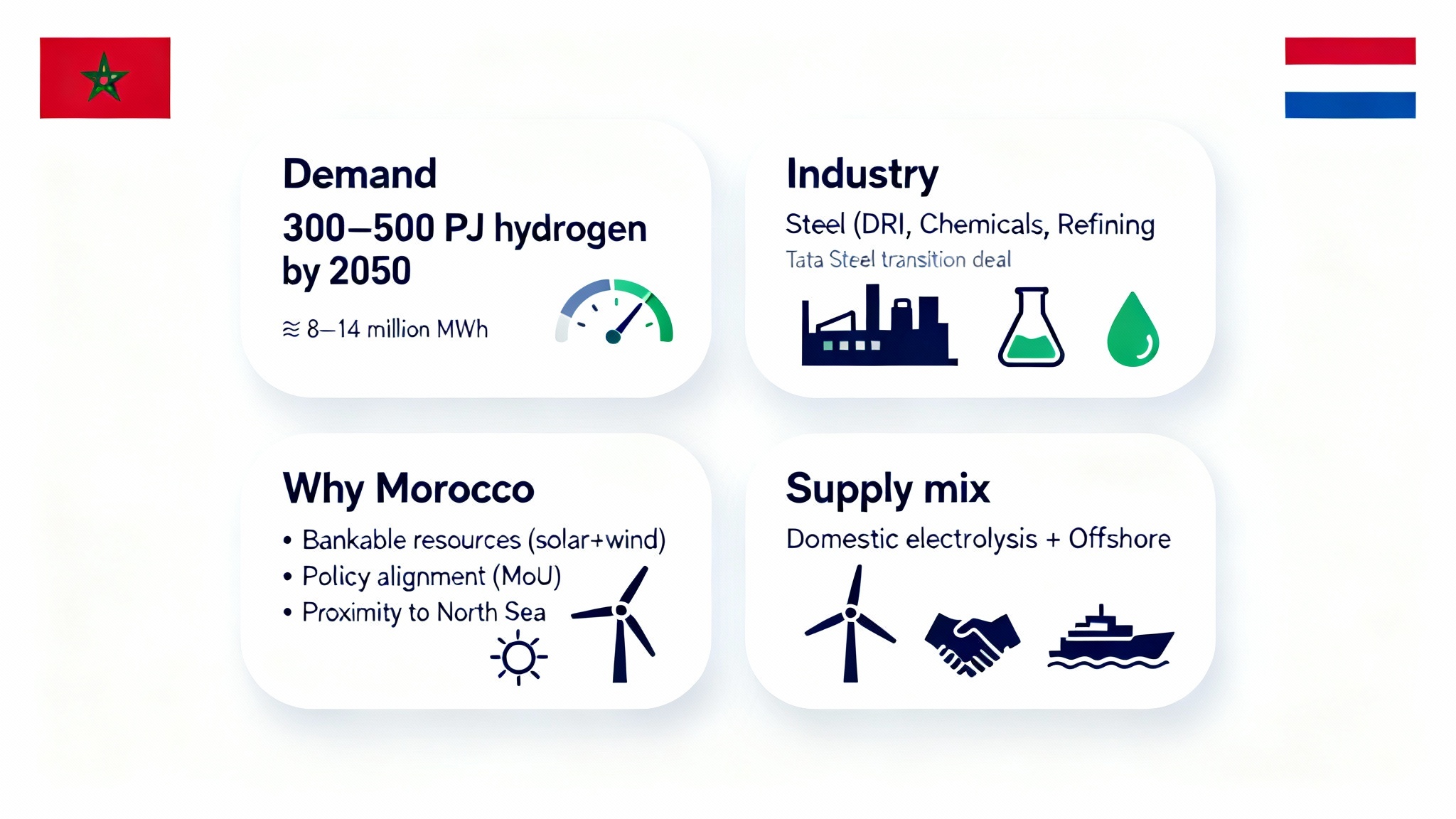
Pioneering the Atlantic: Morocco’s Strategic Roadmap for Offshore Wind

Morocco Signs Landmark Deal With ORNX Consortium for $4.5 Billion Green Ammonia Project in Laayoune

Morocco is set to become a crucial partner in Europe's clean energy transition, particularly for the Netherlands, as a strategic partnership aims to establish a "Green Hydrogen Bridge." This collaboration, moving from vision to volume, will be pivotal in meeting Dutch demand for renewable hydrogen by mid-century, powering Europe's industrial decarbonization efforts.
Tomas Olejniczak, Project Lead for Climate & Energy at the Netherlands Enterprise Agency, underscored Morocco’s emerging role in Europe’s clean energy security: Morocco will be a pivotal partner in meeting Dutch demand for renewable hydrogen by mid-century.
“Our national agency for applied science just released a study this week that we will probably be needing at least 300 petajoules of renewable hydrogen in 2050 and a maximum of 500 petajoules,” Olejniczak told Morocco World News. That scale equivalent to roughly 8–14 million MWh signals a decisive shift in the Netherlands’ energy system, from molecules to green molecules.
“Hydrogen is going to be a very important part of the Dutch industry of steel, chemicals, and many different sectors. So Morocco will be a very important partner for us,” Olejniczak said.
Momentum is already materializing in heavy industry. “Just a couple of days ago, our government signed a deal with Tata Steel to basically green the Dutch steel plants. This is going to be a multi-billion euro investment. Hydrogen is going to be a very big part of it,” Olejniczak noted, adding that the Netherlands hopes “to use some of the Moroccan hydrogen to support this transition as well.”

To turn diplomatic frameworks into delivered cargoes, several enablers must converge:
The Netherlands’ quantified hydrogen needs 300 to 500 PJ by 2050 offer clarity and confidence to project developers. For Morocco, this demand signal validates its strategy to monetize abundant renewables through value-added hydrogen and e-fuel exports. For Europe, it’s a practical pathway to decarbonize hard-to-abate sectors without compromising industrial competitiveness.
If the next three years prioritize bankable offtake, certification alignment, and port-to-plant logistics, the Morocco–Netherlands corridor could become a flagship model for clean molecules trade accelerating Europe’s industrial transition while anchoring Morocco as a global leader in renewable hydrogen.


